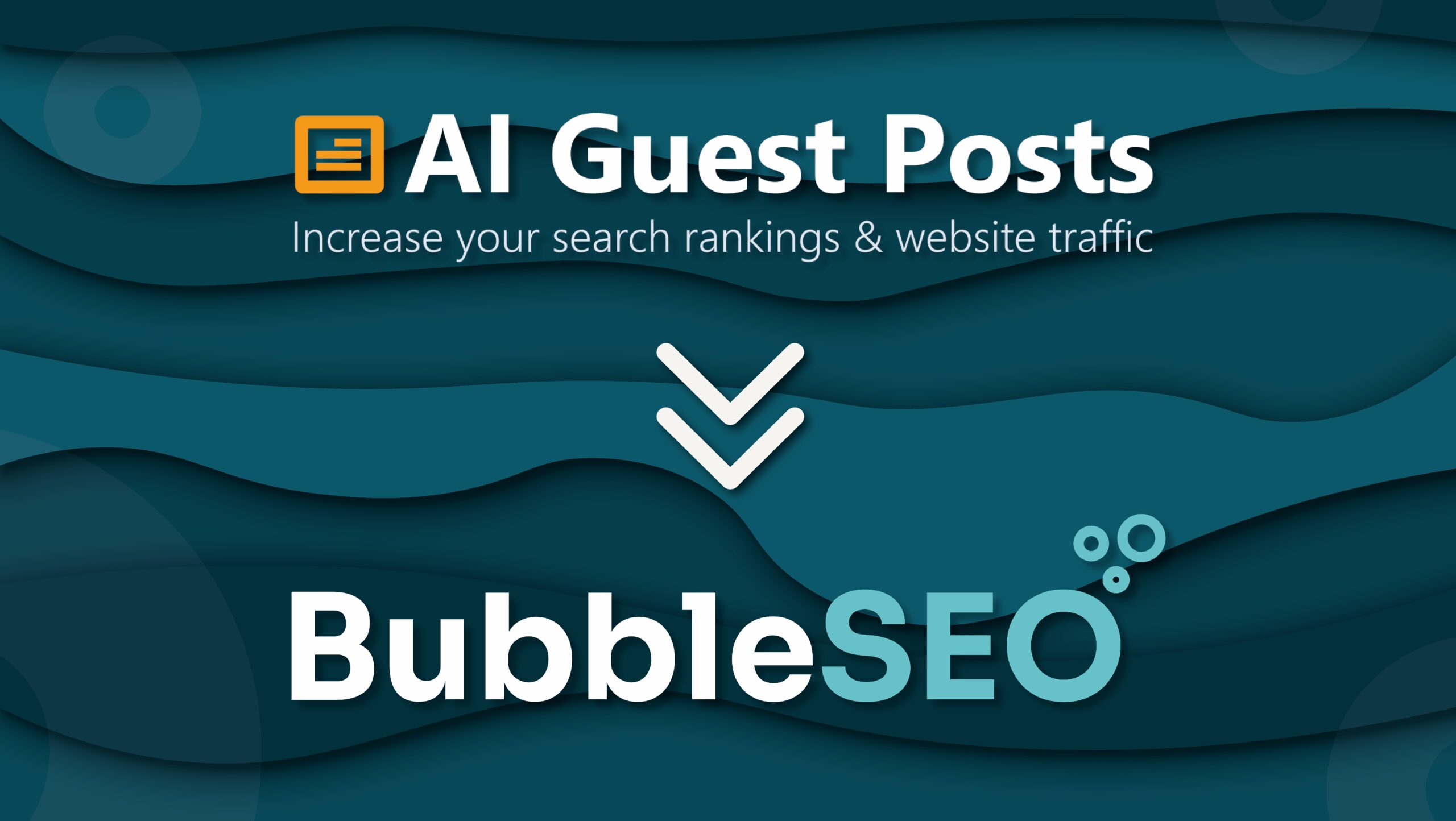
Starting with some quality research that is relevant to the current market

Blogger outreach can elevate your business and grow your exposure to new audiences.

If done effectively blogger outreach can really elevate your business and help towards growing your exposure to new audiences. Blogger outreach is a cost-effective marketing technique that can help gain exposure with a more focused approach.
In terms of a strategy, it is good to help build relationships and bring several industries together. Not only this but it can also be a great way to include aspects of SEO and content marketing to your overall business strategy. Bloggers who share their interest in your business will then also help promote your service to the right audience. These types of bloggers have a dedicated audience who are trusted by their readers and alongside different promotions, will enforce your business to success.
There are many ways you can implement this into your work, take a look at our favourites below:
Guest posting – there are many platforms now that make it easy to publish your article on someone else’s website. This allows you to gain exposure to their exciting audience. You should research this before hand to make sure that you are showcasing to the right industry where your content will be effective. Take a look at BubbleSEO, which has 12 established brand websites for you to choose from, making it easy to find somewhere relevant to your content.
Giveaways – giveaways are another key type of blogger outreach strategy, which work really well as these are beneficial for both the brand involved and the blogger. An example of this would be where the brands provide products and the bloggers to host competitions and engage with people who would like the free product. This can be done over social media campaigns, YouTube, blogs etc. This helps greatly towards brand awareness and exposure!
When looking to start this journey, there are some points you should research and consider to tailor your own business. This includes:
With blogger outreach, this is a budget conscious approach to marketing but can sometimes be difficult to implement. Here are some of our tips to make sure you cover all basis:
Make sure you choose bloggers/post in the relevant niche – blogger outreach is only worthy if you choose relevant niches to your industry. If you do not select a relevant niche, it could have the opposite affect to your business, and bring in less or negative traffic.
Create a good pitch – writing a well-crafted email that grabs the attention above hundreds of other emails that go into the blogger’s inbox. Keep it concise and straight to the point as to what you are looking for and this will give a higher chance of them starting a conversation about what you are looking for.
Building a rapport – creating a strong relationship with a blogger or an influencer can directly boost your traffic. Creating a trustworthy relationship will enhance your blogging so it is a good idea to be clear about what you are wanting to achieve from the beginning.
Blogger outreach is important for every business, no matter the age or size. If blogger outreach is not something you have used within your marketing yet, it is highly recommended. It can bring many rewards and success for your brand and boost sales! By sticking to some of the point above will enable to you make the most out of it.
Grow your business online with content marketing solutions from Bubble SEO today.
Place An Order
In today’s competitive digital landscape, SEO (Search Engine Optimisation) is a crucial element for any website looking to enhance its online presence and attract organic traffic. One of the most effective strategies in SEO is link building—the process of acquiring backlinks from other websites. In this article, we will explore the importance of link building, how it boosts your website’s authority, and how you can effectively implement it in your SEO strategy. What Is Link Building? Link building refers to the process of acquiring hyperlinks from other websites that point back to your own. These backlinks are seen by search engines like Google as a vote of confidence. When reputable websites link to your content, it signals to search engines that your website is trustworthy and authoritative, ultimately boosting your rankings. Why Are Backlinks Important? Backlinks are among the top ranking factors for search engines. High-quality backlinks are one of the primary ways to improve your site's domain authority (DA) and PageRank, both of which contribute to better search engine rankings. Websites with more authoritative backlinks typically have higher chances of ranking on the first page of search engine results. Moreover, backlinks help establish your credibility within your niche, creating opportunities for referral traffic from other sites. Essentially, a well-executed link building strategy helps you build a network of trust with both users and search engines, paving the way for long-term SEO success. Types of Backlinks to Focus On Not all backlinks are created equal. There are various types of backlinks you can acquire, and understanding the differences can help you focus your efforts on the most valuable links: Editorial Backlinks: These are natural links embedded within a piece of content. They come from reputable websites and are usually the result of your content being deemed valuable. Guest Post Backlinks: Guest posting allows you to contribute content to another website, earning a backlink in return. These links are beneficial, especially when they come from high-authority blogs within your industry. Directory Backlinks: Adding your website to trusted business directories can provide valuable backlinks. However, be cautious of low-quality directories that can harm your SEO. Resource Page Links: Many websites feature "resources" pages that link to helpful content. Getting your website listed on such pages can improve your authority. Effective Link Building Strategies Create High-Quality ContentTo attract backlinks naturally, your content must be valuable. Aim to produce well-researched, informative, and engaging content that others would find useful and want to link to. A robust content strategy will not only help with SEO but also position you as an authority in your niche. Leverage Guest BloggingGuest blogging is an excellent way to build backlinks. By writing articles for other reputable sites in your industry, you can earn high-quality backlinks while exposing your brand to a wider audience. Look for opportunities on blogs that have a strong readership and are relevant to your field. Reach Out to Influencers and BloggersBuilding relationships with influencers and bloggers can help you earn backlinks through collaborations or mentions. By offering value in return (e.g., a shoutout, a link to their work, or exclusive content), you can create mutually beneficial partnerships that improve your site's authority. Submit to Niche DirectoriesSubmitting your website to niche-specific directories can also provide valuable backlinks. However, always make sure the directory is reputable and relevant to your industry, as poor-quality directories can have a negative impact on your SEO efforts. Broken Link BuildingThis strategy involves finding broken links on other websites and suggesting your own content as a replacement. By helping website owners maintain their content, you not only help them but also earn a backlink. Utilise Social MediaWhile social media links themselves are typically no-follow (meaning they don’t directly affect SEO), promoting your content on platforms like Twitter, LinkedIn, and Facebook can drive traffic and increase the likelihood of others linking to your website. Measuring the Success of Your Link Building Efforts Tracking your link building efforts is essential for determining the success of your strategy. Some of the key metrics to monitor include: Domain Authority (DA): As your backlink profile improves, your website's domain authority should increase. Tools like Moz’s Link Explorer can help you track this metric. Referring Domains: Keep an eye on the number of unique domains linking to your website. More referring domains generally indicate a stronger backlink profile. Organic Traffic: Over time, an effective link building strategy should result in higher organic traffic to your website. Tools like Google Analytics can help you track changes in traffic. Conclusion Link building is a critical aspect of SEO that should not be overlooked. By focusing on acquiring high-quality backlinks from reputable sites, you can boost your website’s authority, improve your rankings, and attract more organic traffic. Whether you're using guest posting, content creation, or outreach strategies, a thoughtful approach to link building can be a game-changer for your SEO success. For expert link building services tailored to your business, visit Bubble SEO and let us help you create a strong backlink profile that drives your website to new heights.

Article creation is the process of how articles are started, titled, written and developed, and is a key component to any content marketing.

If you're new to SEO, navigating through its many layers can seem overwhelming. However, by following a clear, structured approach, you can start optimising your website and boosting your rankings effectively. Here's The Ultimate SEO Checklist for Beginners to help you understand the fundamentals and ensure you're on the right path to success. 1. Keyword Research Keywords form the foundation of any SEO strategy. Start by identifying the main keywords that are relevant to your business or niche. Tools like Google Keyword Planner, Ahrefs, or SEMrush can help you find high-traffic keywords with low competition. Target Long-Tail Keywords: These are more specific phrases that are less competitive and can help you capture targeted traffic. For example, instead of just "SEO," use "SEO for small businesses" or "SEO checklist for beginners." Understand User Intent: Ensure your keywords align with what your target audience is searching for, and use them naturally in your content. 2. On-Page SEO Optimisation Once you've identified your keywords, it's time to optimise your website pages. Title Tags: Include your primary keyword in the title tag, ideally at the beginning. Keep it under 60 characters. Meta Descriptions: Write compelling meta descriptions with your primary keyword to improve click-through rates (CTR). Header Tags: Use headers to structure your content, with the primary keyword in the H1 tag and related keywords in the H2 and H3 tags. Image Alt Text: Include keywords in the alt text of images to help search engines understand the context of your visuals. 3. Create High-Quality Content Content marketing is at the heart of SEO success. Focus on providing valuable, informative, and engaging content that resonates with your audience. Write for Humans First: Avoid keyword stuffing and prioritise creating helpful content that satisfies the needs of your readers. Use Keywords Naturally: Place your primary keyword in the first 100 words, and sprinkle related keywords throughout the text. However, keep the flow natural. Content-Length: While there’s no magic number, longer content (1000+ words) often ranks better, but only if it provides comprehensive value. Consistent Blogging: Regularly publish fresh blog posts on topics relevant to your audience, leveraging your target keywords. 4. Mobile Optimisation With mobile traffic now surpassing desktop, it’s critical that your website is optimised for mobile users. Responsive Design: Ensure your website is mobile-friendly and loads quickly on all devices. Fast Page Load Times: Use tools like Google PageSpeed Insights to check and improve your site’s speed. Slow sites can hurt both rankings and user experience. 5. Build Strong Backlinks Link building is essential for establishing your site's authority in your industry. The more high-quality backlinks (external sites linking to your content) you have, the better your chances of ranking higher in search results. Guest Posting: Write guest posts for reputable blogs within your niche and include backlinks to your site. This helps both SEO and brand visibility. Internal Linking: Link to other relevant content on your website to create a clear structure and boost page authority. Earn Editorial Links: Create high-quality, shareable content that others in your industry will naturally link to, such as guides, infographics, or data-driven reports. 6. Technical SEO Technical SEO ensures that your website is easy for search engines to crawl and index. Submit XML Sitemap: Make sure your site is indexed by submitting an XML sitemap to Google Search Console. Fix Broken Links: Use tools to identify and repair any broken links on your site, as they can hurt both user experience and SEO. Enable HTTPS: If your site doesn’t have an SSL certificate, secure it with HTTPS to protect users and improve rankings. 7. Track and Analyse Your Results SEO is an ongoing process. You need to monitor and measure your performance to see what’s working and what needs improvement. Use Google Analytics: Track your site’s traffic, top-performing pages, and where your visitors are coming from. Monitor Rankings: Regularly check how your keywords are ranking in search engines, and adjust your strategy accordingly. Watch Your Competitors: Keep an eye on competitors who rank well for your target keywords and analyse what they are doing right. By following this SEO checklist, beginners can set a strong foundation for long-term SEO success. From keyword research and content marketing to link building and technical SEO, each step is vital for improving your website’s rankings and visibility. Stay consistent, be patient, and continually refine your strategy as you track your results. With time and effort, you’ll start seeing the benefits of your SEO efforts!

We're excited to announce that AI Guest Posts has undergone a transformative rebranding and is now known as Bubble SEO. This strategic move has allowed the business to develop within the digital landscape and highlight our commitment to providing digital marketing solutions tailored to enhance online visibility and engagement for our customers. Bubble SEO remains dedicated to delivering high-quality, targeted content and effective SEO solutions that align with evolving digital marketing trends. Here is a little more information about our brand and its services. Our services: At Bubble SEO, we specialise in three core services, with content writing being a new feature to the website: Guest Posting: Which aims to enhance your online presence with high-quality guest posts on authoritative websites, driving traffic and boosting your SEO rankings. Link Building: Helps build a robust backlink profile with strategic link building services that improve your website's authority and visibility. Content Writing: Provides engaging content for your audience with compelling content tailored to your brand voice and SEO needs. Benefits of Bubble SEO: We have now made changes to the booking process to simplify this, and updated the customer dashboard section in the hope to improve our existing values below: Enhanced Service Quality: With our rebranding comes a renewed focus on delivering top-notch services that exceed your expectations. Improved User Experience: Our new website offers a streamlined interface, making it easier for you to navigate and access our services. Expanded Network: Benefit from our expanded network of partner websites, ensuring broader outreach and better opportunities for your business. Loyalty Rewards: As a token of our appreciation for the continued support of our bookers, we have now introduced loyalty rewards: Exclusive Discounts: Enjoy special discounts as a loyal Bubble SEO customer, with the more points you acquire, the more exciting offers you will unlock. We're thrilled about this new chapter as Bubble SEO and look forward to continuing to be your trusted partner in achieving your digital marketing goals. Stay tuned for more exciting updates and announcements! Discover the new Bubble SEO and elevate your online presence today! Jennifer Hobson – Digital Marketing [email protected] Heather Ryan – Business Development [email protected]

In the constantly changing landscape of SEO, staying ahead of the competition means focusing on more than just keywords and backlinks. A growing emphasis is on building topical authority—a strategy that helps websites become recognised experts in their niche, providing immense value to both search engines and users alike. But what exactly is topical authority, and why is it crucial for SEO success? Let’s delve deeper into this concept and understand how to build it effectively. What is Topical Authority? Topical authority refers to how well a website is trusted to provide comprehensive, expert information on a particular subject or niche. In simple terms, it's about becoming an authority in a specific area by covering it extensively and in-depth. When Google sees that your website consistently offers valuable, well-researched, and complete information about a topic, it begins to consider you a "go-to" source for users looking for information on that subject. For example, if your website specialises in “vegan cooking,” building topical authority means creating a vast amount of content that thoroughly covers every aspect of vegan cooking—recipes, ingredients, benefits, challenges, tips for beginners, and more. By consistently providing high-quality, interconnected content, your site gains authority over time, which translates to higher rankings and increased organic traffic. The Importance of Building Topical Authority 1. Improved Search Engine Rankings Search engines, particularly Google, are constantly working on improving the relevance of the search results they provide to users. With advancements in AI and semantic search, Google now looks beyond individual keywords and assesses the overall context of a website. Websites with topical authority are more likely to be ranked higher because Google recognises them as comprehensive and trustworthy sources. 2. Increased User Trust and Engagement Users are more likely to trust websites that provide in-depth, reliable information on a subject they are researching. If a visitor lands on your website and finds a treasure trove of well-organised content, they are more likely to stay longer, interact with your site, and return in the future. This engagement boosts important metrics like time on page and bounce rate, which further helps with SEO. 3. Higher Relevance in Competitive Niches When you establish topical authority, it helps you stand out even in a highly competitive niche. While it may take longer to build compared to targeting specific keywords, the payoff is that you become a resource that Google and users will continue to trust, giving you a competitive edge. Topical authority is especially important in YMYL (Your Money, Your Life) areas, such as health, finance, and legal content, where credibility is key. 4. Sustainable Long-Term Growth Instead of chasing temporary ranking gains through keyword manipulation or questionable link-building practices, building topical authority provides a long-term, sustainable path to SEO success. Google prioritises user satisfaction, and websites that genuinely offer valuable information are more likely to withstand frequent algorithm changes and updates. How to Build Topical Authority: A Step-by-Step Guide Building topical authority requires a well-planned approach that covers the subject matter thoroughly and strategically. Here's a short guide to help you get started: Step 1: Define Your Niche To become an authority, you need to start with a well-defined niche. Broad topics are difficult to dominate, so focus on a specific segment within your industry. For example, instead of focusing on “fitness,” narrow it down to “strength training for women” or “HIIT workouts for beginners.” This focused approach allows you to provide a complete, detailed collection of resources that users and search engines will appreciate. Step 2: Conduct Comprehensive Topic Research Once your niche is clear, research every aspect of it. Tools like Ahrefs and SEMrush can help you identify content gaps and topics that are underrepresented in your niche. Think of the questions people ask, the pain points they have, and the related topics that can support your main subject. The goal is to create a content plan that leaves no question unanswered. Step 3: Create Pillar Content and Cluster Topics Create a pillar page—a long, comprehensive piece of content that covers your niche in depth. From there, develop cluster topics or subtopics that provide detailed information on specific aspects of the main topic. For example, a pillar page on “strength training for women” could link to subtopics like “best strength training exercises,” “beginner strength training programme,” and “benefits of strength training for women.” This internal linking between pillar and cluster content strengthens the topical connection and helps search engines understand that your website covers the subject comprehensively. Step 4: Use High-Quality Backlinks To further enhance your topical authority, consider acquiring backlinks from other reputable sources in your industry. Platforms like Bubble SEO make it easier to gain access to high-authority guest posting opportunities, which can drive traffic and signal to Google that your site is a trusted resource. Aim for backlinks that are relevant to your niche and are from authoritative domains to boost your credibility. Step 5: Maintain and Update Content Google favours websites that are well-maintained and up-to-date. Continually update existing content to reflect the latest trends, statistics, and developments in your niche. Tools like Google Search Console help identify opportunities to refresh content that may be losing its rank over time. This ensures that your content remains relevant and useful, boosting your authority even further. Tips for Strengthening Topical Authority Answer Users' Questions: Make sure your content addresses real questions and pain points users have. Check forums like Reddit and Quora to see what questions people are asking in your niche. Engage with the Community: Actively participate in your niche community through blog comments, social media, and forums. The more you are seen as a contributor, the more authoritative your website will appear. Utilise Structured Data: Incorporate schema markup to help search engines understand the relationships between different pieces of content on your site. This boosts visibility in search results and helps with rich snippets. In an increasingly competitive digital world, building topical authority is the key to establishing your website as a trusted resource in your niche. By providing comprehensive, in-depth content and strategically creating clusters of supporting topics, you not only improve your visibility in search engine results but also build trust and loyalty with your audience. While high-quality backlinks and content promotion are important components of the strategy, the core of topical authority lies in consistently delivering value to your readers. Start by narrowing down your niche, mapping out a detailed content plan, and continually updating your material. By positioning yourself as an expert voice, you’ll create a sustainable path to SEO success that withstands algorithm changes and fosters lasting relationships with your audience.

Link building remains an integral aspect of any successful SEO strategy. In the vast digital landscape, securing quality backlinks can significantly boost your website's authority, traffic, and search engine rankings.